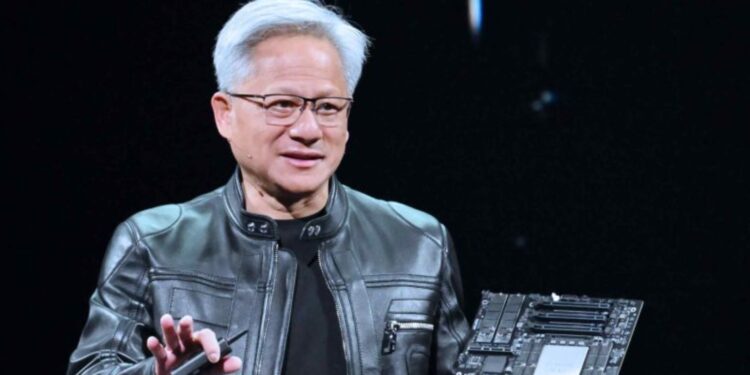In a transformative leap that will revolutionize the human-computer interface, iconic designer Sir Jony Ive, the man responsible for Apple’s most distinctive products, has announced a partnership with OpenAI, the nation’s foremost artificial intelligence development and deployment firm.
The news, released this morning, spread ripples of giddiness and speculation throughout the tech world, signalling a potential sea change for how we think about and use computers.
The design firm of Ive has been sold to OpenAI for an “incredible” $6.5 billion. Ive will play a substantial role in shaping the design & creative direction of a new generation of AI-powered devices.
This is an important development for OpenAI, as it shows the intent of the company to branch out beyond software and create its own product in the realm of the physical world.
The CEO of the OpenAI, Sam Altman, welcomed the partnership, calling Ive the “best designer in the world”. He imagines a partnership that will “totally recreate how to use a computer,” suggesting inventive interfaces and designs that extend beyond today’s screens and keyboards.
Ive, who worked at Apple for almost 30 years and helped shape the design language of the iMac, iPod, iPhone and Apple Watch, also felt similarly.
He thinks the world is on the “cusp of a new epoch of technology” and he is extremely excited to work with Altman and the OpenAI team to produce devices that are an unobtrusive part of human ability.
Analysts in the industry say this partnership could result in entirely new categories of AI-infused hardware.
Though specifics are scant, the combination of OpenAI’s IoT know-how with Ive’s distinctive design sensibilities forebodes a tomorrow where devices are far more intuitive, adaptable and seamlessly fit into the tapestry of our lives.
It also begs the question about which way Apple’s design may be heading. After Ive left the company in late 2019 to form LoveFrom, the company has seen incremental design changes rather than transformative leaps.
His direct involvement with a possible competitor in the A.I. hardware market could increase pressure on Apple to innovate in A.I. and the design of its devices.
Jensen Huang, the chief executive of the largest United States chipmaker, Nvidia, has lambasted the US policy on the export of chips to China as a “failure” that has affected American firms adversely.
Huang said at a press conference at the Computex technology conference in Taipei that Washington’s restrictions have forced Nvidia to lose out on billions of dollars in revenue and have had the unintended consequence of supercharging China’s fledgling domestic semiconductor business.
The United States government started imposing restrictions on the export of high-end computing chips to China in 2022, citing national security concerns and in a bid to stop the transfer of technology that the US thinks could improve China’s military power.
These limitations were then made even more restrictive under later presidencies. But Huang argues that these measures have had the effect of strengthening Chinese tech firms.
“On the whole, the export control failed,” Huang said, adding that the policies have spurred Chinese companies to make major investments in developing their own advanced chips. He noted that Nvidia’s share of the market in China has fallen from a commanding 95% four years ago to about 50% today.
This substantial drop is primarily due to the export restrictions, which have forced Chinese companies to look for, and develop, domestic substitutes, Huang said.
Huang also praised the chinese tech industry’s adaptability and innovation, and how quickly companies like Huawei have developed. Instead, the policies in the US, he said, have given Chinese companies “the spirit, the energy and the government support to accelerate their development.”
Despite the clampdowns, AI research in China is roaring ahead as the country’s homegrown chips become more and more able to serve the industry.
Nvidia has even felt the financial effects of these export controls itself. The company recently reported a $5.5 billion hit on its inventory for chips it couldn’t sell, including the H20, to Chinese customers. Huang cautioned that the US could be left behind when it comes to the potential of the Chinese AI market, which he believes could be worth $50 billion in the near future.
Admitting that the national security concerns are the basis for the US policy, Huang said the current approach is ill-conceived and bad for American competitiveness. He said limiting access to U.S. technology has only encouraged China to work to become independent in its own chip manufacturing, building a robust, and increasingly competitive, domestic industry.
“It’s essential for U.S. firms such as Google to be on the ground in China, if they want to remain global leaders in AI,” Huang said.
The condemnation by the CEO of Nvidia is one of the latest reactions to the US chip policy toward China, raising concerns about its long-term implications for the technology sectors of both sides, as well as their competitive edge worldwide.










![Online Scam Cases Continue to Rise Despite Crackdowns on Foreign Fraud Networks [Myanmar] Online Scam Cases Continue to Rise Despite Crackdowns on Foreign Fraud Networks [Myanmar]](https://sumtrix.com/wp-content/uploads/2025/06/30-12-120x86.jpg)




